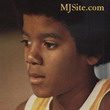
# I started writing this post while I was watching the recording of Michael Jackson’s Memorial alone. I therefore dedicate this to him. Thank you for sending us the music.
When news of Michael Jackson’s death was broadcast, I could not believe what I heard. I know that name, Michael Jackson. He is the black guy whose records my brother had brought home when we are teenagers. At that time, our parents were confused and concerned over this newfound obsession with western music, song and dance. We were teenagers, my siblings and I; we understood the message in the music like Bad, Thriller and Heal The World. What I thought we were most connected to was neither his dancing nor singing; it was his music videos and concert performances.

What do music videos do? When you sit down to watch music videos, you are called upon to relate to the lyrics of the songs through fashion, facial expressions and dance movements as the music and lyrics resonate in your ears. It is therapeutic in a way not to have to look at the chalkboard or blackboard, taking notes and flipping through pages of our textbook, constantly being led on by teachers. Watching music videos was a way of rehearsing the language in our heads without need to physically be involved in the learning. We only need to sit down, watch and enjoy. What could be easier (and lazier) than that?
Thankfully enough, music videos that arrived at our homes had gone through censorships first. Our parents did not understand English but they were very well prepared to teach us moral and manners. We did not have parental locks on our television then, because we had our parents. They would know, by instinct, how to protect their children if they had to. They did not have to scream or shout at us to get our attention. They are not vulnerable, always in control and you could tell from the tone of their voices if they were angry.
Many music videos these days send out confusing messages about sex, violence and crime; parents do not even know how to begin disciplining and educating their kids about the psychological consequences of watching them. Parental locks had to be created to ‘subtly’ ban kids from getting their hands on these videos. Education, though it has to be open, could not remain so. This creates a chain reaction: kids no longer trust their parents who put on passwords to everything they would have loved to watch. They resort to other sources to access these videos: they borrow, steal, buy them with their own pocket money or beg from friends and watch these videos in the privacy of their own space.
Many parents, including mine, had to question: Is this what studying English is all about? That our children would bring home foreign culture to the living room and sing their songs? There are mixed feelings about our love for listening to English music; our parents do not want us to stop learning English the language, the education of which they believe will exonerate us from our humble existence or open the doors for more employment opportunities in future.
Their dilemma can be felt when they comment on the fact that we do not even know how to tie sarongs properly, sit with legs crossed on the floor or take our shoes off at the door when we enter the house. Every behaviour and mannerism that does not match their perception of cultural traditions is considered western or foreign.
The only way we, the children, could prove the harmlessness of our behaviour and mannerism is to bring home the good grades from school. We therefore can make them proud to have us become acquainted to foreign languages.
My mother who is now 80 years old is reminded of the days when we were playing music videos at home. (Dad died at the age of 51 years old.) The arrival of Michael Jackson’s albums meant a connection with the English language through music videos. Unlike the Beatles, Elvis Presley, Whitney Houston, Daryl Hall and John Oates or the late John Denver, this guy was a black African American (orang hitam) who had afro hairstyle and danced with a silver glove in one hand. Like I have explained earlier, our parents were very loyal to the call of education and patient with our journey of learning foreign languages. As long as we made the grades, we were allowed some form of freedom to enjoy singing English songs and watch MTV music videos. We felt triumphant. English music was the native language our family had invited home to live with us. The role of music on learning the English language is no longer separated, to this day.
If language were the reel, than music would be the material that was stored in this reel amongst many other components of which language comprised.

